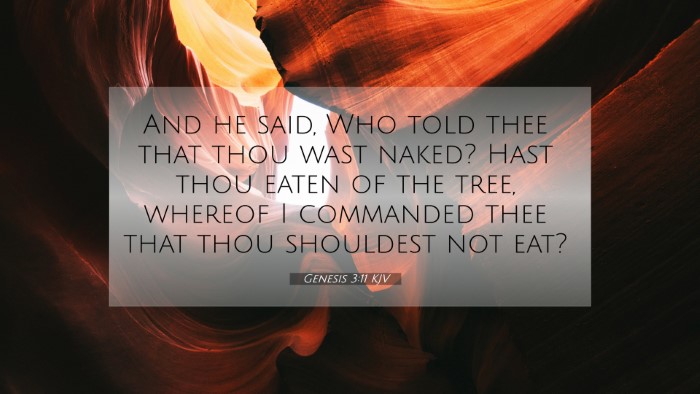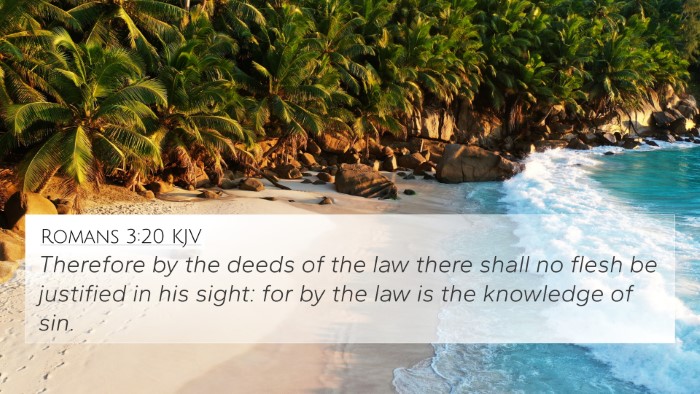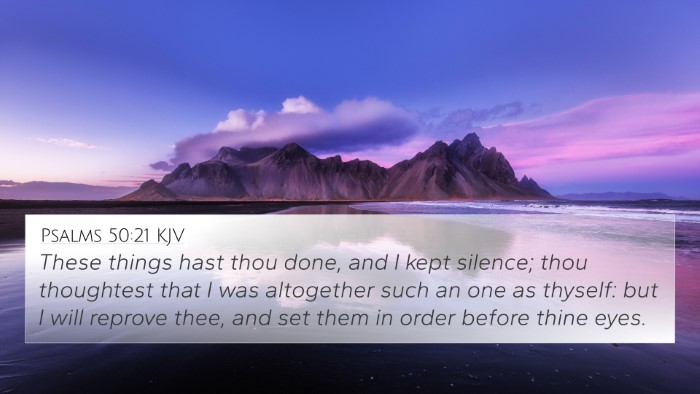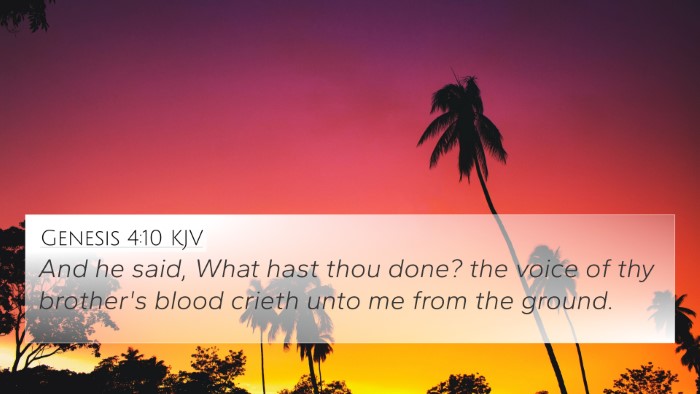Understanding Genesis 3:11
Genesis 3:11 reads, "And he said, Who told thee that thou wast naked? Hast thou eaten of the tree, whereof I commanded thee that thou shouldest not eat?" This verse is pivotal as it unveils the consequences of mankind's disobedience and introduces the dialogue between God and humanity, marking a significant moment in biblical history.
Contextual Background
The context of this verse lies in the narrative of the Fall, where Adam and Eve, created in innocence, succumb to the temptation of disobedience. Matthew Henry’s commentary emphasizes that this question from God highlights His omniscience. Though God knows the answer, He desires Adam to reflect on his actions and acknowledge his wrongdoing.
Meaning and Interpretation
Divine Inquiry: Albert Barnes notes that God's question, “Who told thee that thou wast naked?” serves to awaken Adam’s conscience. It’s not merely about physical nakedness but symbolizes spiritual awareness—a loss of innocence.
Consequences of Disobedience: Adam's response reveals the fractured relationship between mankind and God. Adam acknowledges his shame, which signifies a departure from the intended communion with the Creator. Adam Clarke highlights that the shame of nakedness here reflects the deeper spiritual nakedness that sin brings.
Thematic Connections
This verse establishes several thematic connections throughout the Bible:
- Innocence vs. Guilt
- Temptation and Sin
- Divine Justice and Mercy
- The nature of Human Responsibility
Bible Verse Cross-References
To further explore the themes present in Genesis 3:11, here are some relevant cross-references:
- Genesis 2:16-17: The command not to eat from the tree is articulated here, providing context to the disobedience mentioned in Genesis 3:11.
- Romans 5:12: This verse discusses how sin entered the world through one man, drawing a direct line to the actions of Adam.
- James 1:14-15: These verses elaborate on the process of temptation leading to sin, echoing the dynamics presented in Genesis.
- Genesis 3:7: The moment Adam and Eve realized they were naked, indicating the immediate effect of their disobedience.
- 2 Corinthians 5:3: Here, Paul discusses the idea of being "naked" spiritually, connecting to themes present in the Fall.
- Isaiah 59:2: This verse articulates how sin creates a barrier between humanity and God, relevant to the shame felt by Adam and Eve.
- Matthew 7:23: God’s inquiry aligns with the verses discussing accountability and divine judgment, reinforcing the concept of personal responsibility.
Connections Between Bible Verses
The inquiry of God carries a weight that resonates throughout Scripture. This moment of questioning draws parallels to other instances where God calls His people to accountability. For instance, paralleling with God’s questioning of Cain in Genesis 4:9, “Where is Abel thy brother?” emphasizes a continued theme of divine inquiry regarding human actions.
Linking Bible Scriptures
The linkage found between Genesis 3:11 and the New Testament, especially in areas that discuss sin and accountability, shows an inter-Biblical dialogue that enhances our understanding of God's justice and mercy. These verses serve as a basis for understanding the nature of sin as expounded in the epistles of Paul, especially in relation to the redeeming work of Jesus Christ.
Conclusion
Genesis 3:11 opens a discussion on sin, responsibility, and the quest for reconciliation with God. It serves as a reminder that knowledge gained through disobedience can lead to spiritual alienation. As we utilize tools for Bible cross-referencing, we can better understand the ramifications of this pivotal moment and recognize the connections of human experience with divine intent throughout Scriptural history.
Additional Insights
The exploration of Genesis 3:11 reveals how this foundational text interacts and dialogues with other parts of the Bible, calling for a comparative Bible verse analysis. Knowing how to find cross-references in the Bible enables us to appreciate the richness of biblical themes and the intricate weaving of God's plan for humanity throughout Scripture.





